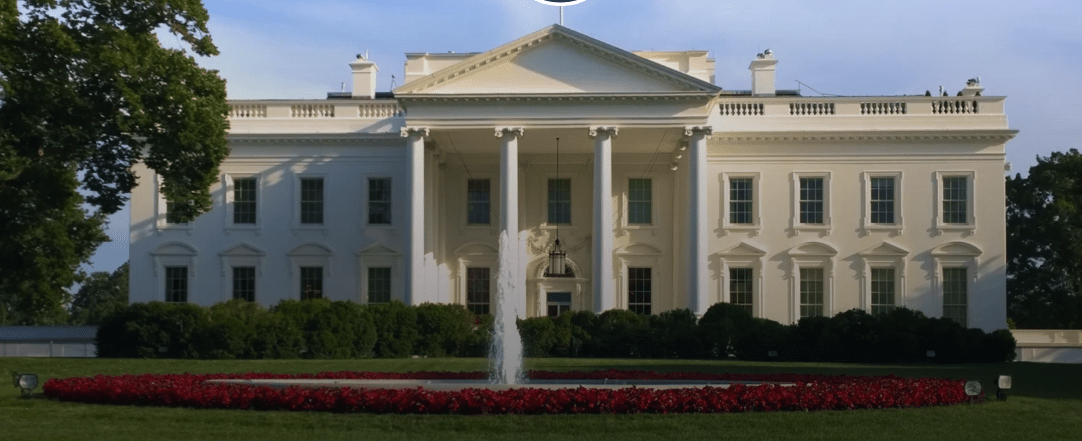Biden and Surveillance: Hypocrisy and End‐Runs
In which the Administration bans China from buying your data but not the FBI, and how it links to the FISA reauthorization fight.

In case you missed it, two developments this final week of February underscore the Biden administration’s to issues implicating the constitutional rights of Americans.
Item 1: an executive order (EO) issued on February 28 that, in relevant part, directs the Attorney General to issue regulations
… that prohibit or otherwise restrict United States persons from engaging in any acquisition, holding, use, transfer, transportation, or exportation of, or dealing in, any property in which a foreign country or national thereof has any interest (transaction), where the transaction:
(i) involves bulk sensitive personal data or United States Government‐related data, as further defined by regulations issued by the Attorney General pursuant to this section;
(ii) is a member of a class of transactions that has been determined by the Attorney General, in regulations issued by the Attorney General pursuant to this section, to pose an unacceptable risk to the national security of the United States because the transactions may enable countries of concern or covered persons to access bulk sensitive personal data or United States Government‐related data in a manner that contributes to the national emergency described in this order;
Definitely reeks of the “ban TikTok” movement that’s become one of the few anti-Big Tech crusades uniting Republicans and Democrats. It’s also an example of political hypocrisy on steroids. President Biden’s presidential campaign established its own TikTok account a little over two week’s ago, with CNBC reporting that “Biden campaign advisors told NBC News the TikTok account is part of an effort to meet voters where they are.”
What’s remarkable about this EO is that it argues that “bulk sensitive personal data” flows to countries like China are a national security threat while providing zero examples that such data flows have, in fact, resulted in successful espionage or tech theft efforts by the PRC, Russia, etc.
Indeed, there’s a glaring double standard created by this EO.
Biden’s EO is curiously silent about past incidents involving the FBI, DEA, the BATFE, HSI, ICE, CBP, or any other federal law enforcement agency from buying the very same kind of data broker–derived personal information on U.S. Persons that it claims to be so desperate to keep out of the hands of China, Russia, etc. I don’t have to worry about the FSB (the Russian successor to the KGB) showing up at my door with badges & guns & searching my home absent a criminal predicate. I do have to worry about the FBI doing exactly that, with help from the data broker community, all paid for with my (and your) tax dollars.
And it is those very federal law enforement agencies and their misuse of info obtain from data brokers that led the House Judiciary Committee in December 2023 to vote 35–2 in support of the Protect Liberty and End Warrantless Surveillance Act (PLEWSA), which would, among other things, amend the Foreign Intelligence Surveillance Act (FISA) to mandate a warrant to obtain such data.
And it’s likely—very likely—that the extremely strong House GOP and House Democrat support for PLEWSA is the driver for the other Biden administration surveillance‐related stunt this week: trying to get FISA renewed without a congressional vote on a new bill.
The same day the Biden EO was issued, The New York Times reported that with respect to FISA reauthorization:
The law had been set to expire in December, but Congress voted to extend it until April 19 to give itself more time to debate proposed changes. Lawmakers have yet to reach a consensus, and this month, a plan to hold a floor vote on the matter collapsed in the Republican‐controlled House before a two‐week recess.
The legislative paralysis has brought the calendar to the moment when the Justice Department and the Office of the Director of National Intelligence each year normally ask the Foreign Intelligence Surveillance Court to issue new certifications allowing the program to operate.
The law essentially requires the executive branch to ask the court to renew the certifications at least a month before they lapse to ensure there is no gap in coverage. The current orders governing the program expire on April 12, and officials have said they build in another week to give communications companies time to adjust their systems to any changes.
The law also says the program can keep going for the duration of annual orders from the court—even if the underlying statute expires in the meantime.
The New York Times said that Biden is seeking an extension of the existing FISA Section 702 orders through April 19, 2025.
In theory, this kind of legal maneuver should only apply to those currently under Section 702 surveillance. But what happens if other supposed threats pop up after any Foreign Intelligence Surveillance Court approval of a 1-year extension of 702 authority?
The next president could simply direct the National Security Agency or the Central Intelligence Agency (CIA) to start a new FISA-like electronic surveillance program under EO 12333.
We know about this precedent thanks to a FOIA lawsuit against the Privacy and Civil Liberties Oversight Board and the revelation of a CIA electronic surveillance program under EO 12333 between at least 1995 and 2000.
If a president were to designate a new surveillance program a covert action, notification would only go to the House and Senate Intelligence Committees and the senior‐most leadership of the House and Senate—which historically have been very pro‐surveillance regardless of party affiliation. The House and Senate Judiciary Committees—which in theory have primary jurisdiction over such programs—would be completely cut out of the loop.
It’s also possible the Administration leaked this potential FISA congressional end‐run ploy as a means of turning up the political heat on House Speaker Mike Johnson (R‑LA) to get a FISA Section 702 renewal bill to the House floor before the current April 19, 2024, FISA Section 702 expiration date.
No matter which is the case, the Administration’s hypocritical actions are a threat to a basic constitutional right we’re all supposed to enjoy. If you’re less than thrilled with these developments, you can let the Administration know your feelings right here.
As always, thanks for reading and do share widely. 😎





